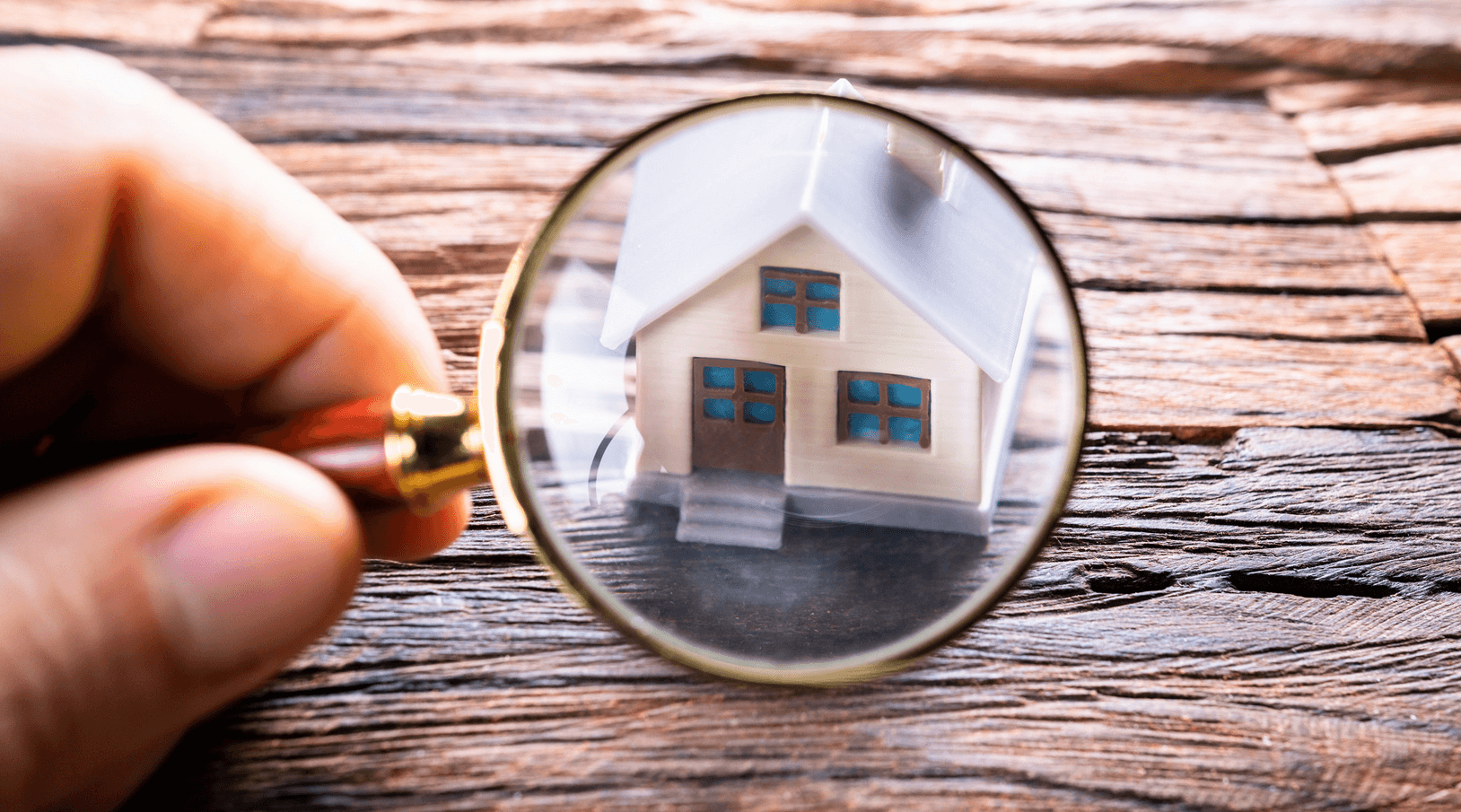The Importance of Home Inspections: A Q&A for Buyers and Sellers

When buying or selling a home, there are a lot of moving parts and it can be overwhelming from the start. One crucial step often overlooked is the significance of the home inspection. This essential step in the home buying process can make or break a deal, offering invaluable insights into the property’s condition that influence negotiations, pricing, and ultimately, whether the home sale will go through. Yet, many individuals find themselves confused and wondering what comes next? What does it entail? Why is it so important? How does it affect both buyers and sellers?
Today, we’re taking a deep dive into the nitty-gritty of home inspections, answering common questions providing you with all the information you need to make informed decisions in your real estate journey.
Should you use a home inspection prior to buying or selling?
Almost 90% of all home buyers today, when buying an existing home, will use a home inspection service.
Over 80% of all home inspections’ results reveal something that needs to be repaired.
Many sellers will also use a home inspection service prior to listing a home for sale in order to spot problems that might interfere with the sale. In both cases this is well advised, and not using a home inspection service is very risky despite the fact that most states require sellers to disclose material facts or known deficiencies. Many lawsuits have occurred from sellers not recalling significant flaws in the condition of their home and buyers discovering major repairs required for safe habitation. All professional real estate agents will recommend getting an inspection prior to buying.
In the case of new homes, there are usually warranties of one to several years that should provide some comfort as to the condition of the home. Still, one might want to consult with some contractors or vendors if there are questions about the adequacy of the HVAC, water heating system, solar panels or insulation for the home in question.
Do home inspections result in buyers backing out of the deal?
No. Rarely do buyers back out of a deal simply because a home inspection reveals some necessary repairs. As long as the purchase contract stated that the purchase of the home is contingent on a satisfactory home inspection, the buyer has the right to back out if the inspection reveals significant issues. About half of the time, indicated repairs will result in a negotiation for seller’s credits at closing in order to compensate the buyer for necessary repairs. A good way to handle the inspection contingency is to suggest a dollar limit on repairs, whereby the seller can either provide credits or at the buyer’s option they can cancel a deal. Say for example, that someone is buying a $500,000 home and they insert a contingency that if repair estimates exceed $30,000 the buyer has the right to cancel the contract. Such language does not mean the deal will fall through, but it protects the seller from a buyer walking away from a contract when only minor repairs are needed. There are many variations on how this contingency can be handled and how specific the buyer wants to get. For example, the buyer may want a negative wood infestation report or else they have the right to cancel the contract or a report where the damage is only minor with repairs provided by the seller via credits at closing.
When should I walk away from a home inspection report?
Very few buyers back out of a deal simply as a result of a home inspection. Usually, the seller will require a non-refundable deposit that they get to keep if a buyer backs out without good reason, such as the home inspection revealing only minor repairs. It is a good idea to be very specific about the dollar cost limits that would trigger the buyer’s ability to walk without a loss of a good faith deposit.
Reasons to back out include structural and safety defects that are not reasonably repairable. These could include foundation crack concerns or hillside retention concerns, or significant termite damage, or a roof that needs to be replaced or anything that is a very high-cost item relative to the value of the home. A second inspection may be required in the event of a major defect concern, usually by a specialist such as a civil engineer or roofing company.
How much do home inspections cost?
The typical cost range for home inspections runs from $350 to $1250 depending on the size and complexity of the home. The more typical home inspection cost is closer to $350 to $500 for middle class homes. Sometimes, additional inspections by specialists will be required. Given the high benefit to cost ratio, this is one of the smartest risk management decisions a buyer or seller can make.
How much do home inspections save buyers?
On average buyers that renegotiate after an inspection revealing significant repairs needed save about 5% of the purchase price. An inspection will likely save 20 to 100 times what it costs to do the inspection.
What do most home inspectors examine?
While the exact checklist will vary by geography and the size and complexity of the home, the typical checklist will include the following:
| Air conditioning and filters |
| Asbestos |
| Attic and insulation |
| Basement and foundation leaks |
| Ceiling fans |
| Drainage around house, grading |
| Electrical system, panels and capacity |
| Exterior paint condition and cracks |
| Fencing and safety |
| Foundation, driveway, patios, paths |
| Garage door openers |
| Gutters and downspouts condition |
| Heating system and filters |
| Interior paint, signs of leaks, moisture, lead |
| Locks and safety |
| Mold and moisture and water damage |
| Plumbing |
| Radon |
| Roof and leaks |
| Swimming pool cracks and condition |
| Trees overhanging or touching house |
| Vents and airflow |
| Water heater condition |
| Windows, glazing seals, fit |
| Wood eating insects and wood rot |
Additional items might be included upon request such as solar panels and swimming pool filters and heaters, outdoor patios, gazebos, and termites, or may require additional experts. For example, an inground swimming pool hairline crack concern might require a separate inspector that specializes in swimming pools.
Among the most common and most expensive repairs are roofs, wood rot, foundation cracks, and HVAC replacement. Finding an existing home in perfect condition is highly unusual. Home inspectors will be able to clearly verify if the home has been well maintained or not. They will not always know how much repairs costs will run, which requires the services of firms like BOSSCAT.
How do I find a home inspection service?
Finding a good home inspection service involves several steps:
- Ask Your Real Estate Agent: Real estate agents often have a list of home inspectors they’ve worked with in the past1. However, be aware that this could potentially present a conflict of interest.
- Eliminate Uninsured Inspectors: Make sure the inspector has proper insurance coverage.
- Review Sample Reports: Ask potential inspectors for a sample report to understand what their inspections cover. If they don’t cover something of concern, ask them to include it or help you find someone who can do the proper investigation.
- Interview Inspectors: Speak with potential inspectors to understand their process, experience, and whether they meet your specific needs.
Also, consider checking professional organizations such as the American Society of Home Inspectors (ASHI), the International Association of Certified Home Inspectors (InterNACHI), and the National Academy of Building Inspection Engineers. These organizations often have databases of inspectors, details about their experience, professional certifications, and the services they provide. Not every state requires home inspectors to be licensed, and the quality of certifications can vary. So, it’s important to do your due diligence when choosing a home inspector.
Does BOSSCAT offer inspection services?
BOSSCAT Home Services has partnerships with leading home inspection companies across the United States. Home inspection services are available for both home buyers and real estate agents through BOSSCAT.
Here are just a few of the key services offered:
- Home Inspection: Inspectors examine all structures and major systems of a home. They identify important factors for you to consider as you make your home ownership decision.
- Added Services: Provides a variety of added services that help with the home buying process as well as homeownership. These services include Mold/Spore Detection, Radon Testing, Septic System Inspection, Sewer Scoping, Swimming Pool, Spa and Hot Tub Inspection, Water Quality Testing, Water System Testing, Well Inspection, Wind Mitigation Inspection, and Wood Destroying Organisms.
- Technology and Knowledge: Uses technology coupled with deep knowledge to provide an exceptional home inspection with unique and innovative features such as 360 virtual imaging and floor plans.
- Trained Inspectors: All inspectors are trained to inspect all major items inside and outside of the home. They are trained to always operate at the highest standards.

